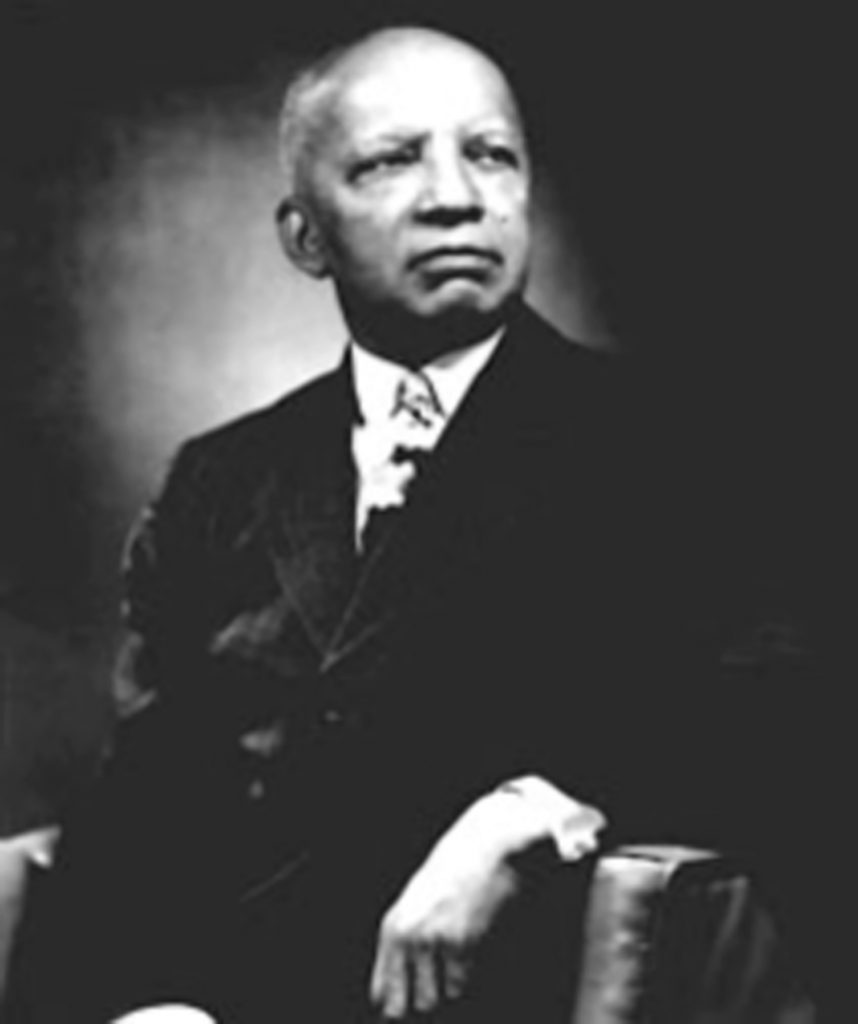When Carter Goodwin Woodson, established Negro History week in 1926, he realized the importance of providing a theme to focus the attention of the public.
The intention has never been to dictate or limit the exploration of the Black experience, but to bring to the public’s attention important developments that merit emphasis.
For those interested in the study of identity and ideology, an exploration of the Association for the Study of African American Life and History (ASALH’s) Black History themes is itself instructive.

Father of Black History Month
Over the years, the themes reflect changes in how people of African descent in the United States have viewed themselves, the influence of social movements on racial ideologies, and the aspirations of the Black community.
The changes notwithstanding, the list reveals an overarching continuity in ASALH–our dedication to exploring historical issues of importance to people of African descent and race relations in America. –Daryl Michael Scott, Howard University
The 2021 theme is the “The Black Family: Representation, Identity and Diversity”
Carter G. Woodson was born in New Canton, Virginia on December 19, 1875, the son of former slaves Anne Eliza (Riddle) and James Henry Woodson.
NDG 1/28: Arnold gives update on Dallas COVID-19 vaccine program
His parents were both illiterate and his father, who had helped the Union soldiers during the Civil War, supported the family as a carpenter and farmer.
Dr. Carter G. Woodson (December 19, 1875–April 3, 1950) is known as the father of Black history and Black studies.
NDG 1/14: Disavowing Black and Brown Votes: Just say ‘no more, not ever again’ and push back at corporations that support rogue Republican politicians
He worked tirelessly to establish the field of Black American history in the early 1900s, founding the Association for the Study of Negro Life and History and its journal and contributing numerous books .
Woodson a graduate of the Berea College Class of 1903 and also known as the “Father of Black History,” was born in New Canton, Fluvanna County, Virginia, during the American Reconstruction.
NDG 1/7: ‘We Took the Capitol’: Trump supporters storm the chambers of Congress
Raised in a literate family among school teachers, Woodson left New Canton to join his two older brothers working in the coal mines of Huntington, West Virginia, at the age of seventeen.
He was the fourth of nine children born to parents who had been enslaved. As an African American boy growing up in central Virginia during the late 19th century in the Reconstruction Era, Woodson had few educational or employment opportunities.
Woodson founded The Journal of Negro History in 1916 and began Negro History Week (later Black History Month) in 1926, earning him the nickname “The Father of Black History.
The son of enslaved African Americans, Woodson earned an undergraduate degree at Kentucky’s Berea College in 1903 and then another at the University of Chicago in 1907.
Woodson was an African–American historian, author, activist, and professor. He is fondly remembered as the “Father of Black History,” as he initiated the annual celebration of the ‘Negro History Week.’ In the 1970s, it turned into a month-long observance.
Woodson became the first and only individual of slave parentage to earn a Ph.D. in history.




